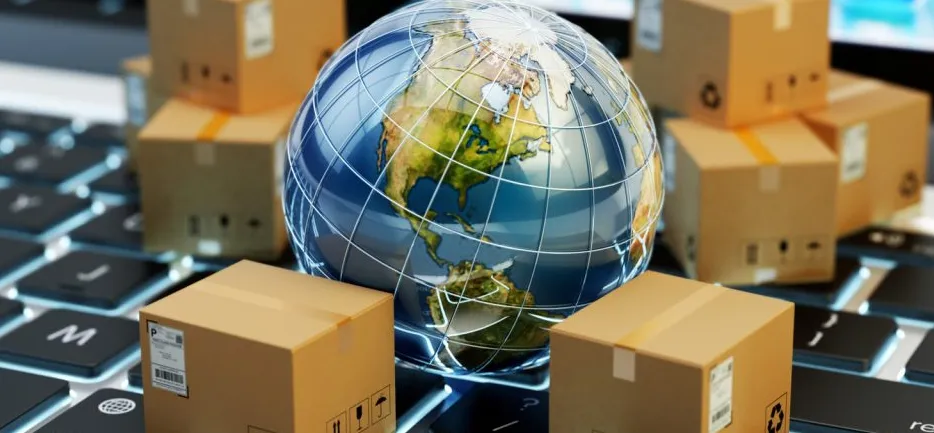What is the role of a sourcing agent?Your Strategic Partner for Smarter, Safer International Sourcing

If you're looking at international suppliers, you've probably hit a wall. It’s one thing to find a factory on Alibaba; it’s a whole other challenge to make sure they’re reliable, the quality is consistent, and you’re not getting hit with hidden costs or ethical scandals.
That’s exactly where a global sourcing agent comes in.
Think of us less as a "middleman" and more as your on-the-ground procurement and quality control team. We're the practical experts who turn the chaos of global sourcing into a streamlined, predictable process.
Let's break down what that actually means for your bottom line and your peace of mind.

Sure, we find suppliers. But our real value is in everything that happens after we have a list of potential names.
Here’s a behind-the-scenes look at the core responsibilities:
Deep-Dive Supplier Vetting: We don't just check a business license. We visit the factory unannounced to audit their production capacity, machinery, and working conditions. We verify their past orders and financial stability. The goal is to see if they can actually deliver what they promise, month after month.
True Cost Negotiation: It’s not just about unit price. We negotiate everything: tooling costs, payment terms (pushing for 30% deposit instead of 50%), and who covers the cost of defective units. We break down the manufacturer’s quote line-by-line to ensure there are no surprises.
Hands-On Production Management: We don't just place the order and hope for the best. We’re on the factory floor during the first production run, checking samples against your specs. We manage the production timeline and push back if there are delays.
End-to-End Quality Control: This is non-negotiable. Before shipment, we conduct pre-shipment inspections based on internationally accepted AQL standards. We’re checking for defects, material quality, and function. This is your last line of defense before goods end up in your warehouse.
Logistics & Compliance Coordination: We handle the complicated stuff—customs documentation, HS codes, and freight forwarding—so you don't have to become an overnight expert.
In short, we take on the operational burden and mitigate the risks you’d otherwise face alone.
So, should you build your own team or partner with an agent? Here’s a practical breakdown to help you decide.
| Consideration | In-House Team | Global Sourcing Agent |
|---|---|---|
| Upfront Cost | High (Salaries, benefits, software, travel) | Low (Typically a % of order value or fixed fee) |
| Market Speed | Slow (Takes time to build networks and trust) | Fast (Immediate access to pre-vetted supplier networks) |
| Regional Expertise | Limited to the team's experience | Deep, native-level knowledge of specific countries |
| Risk Management | You bear 100% of the risk (quality, fraud, delays) | The agent shares the risk and provides mitigation |
| Scalability | Difficult and expensive to scale up or down | Highly flexible; you scale services with order volume |
The bottom line: Choose an agent when you need to move fast, lack specific regional expertise, or want to convert fixed HR costs into variable operational costs. Building an in-house team makes sense when your volume is massive and consistent enough to justify the overhead.
This is where a modern sourcing agent becomes a strategic partner. It’s no longer just about cost; it’s about your brand’s reputation.

A good agent will proactively help you build a responsible supply chain. Here’s how we do it:
We Build Your ESG Evaluation Scorecard: We go beyond the basic audit. We assess a supplier’s energy sources, waste management, labor practices, and ethical sourcing of raw materials.
We Are Your On-The-Ground Watchdog: We can spot the difference between a factory that’s genuinely compliant and one that’s just good at hiding things. We conduct unannounced visits and interview workers off-site to get the real story.
We Find You Certified Partners: We have networks of suppliers who already hold certifications like ISO 14001 or SA8000, speeding up your compliance journey.
The bottom line: Partnering with an agent who gets ESG protects you from reputational disasters and future-proofs your supply chain against tightening regulations.
Any international sourcing has risks. Our job is to anticipate and manage them. Here’s a look at our playbook:
Dual Sourcing for Critical Items: For essential components, we always identify and qualify a second supplier. Yes, this may mean slightly higher MOQs or tooling costs, but it’s your best insurance against production stoppages.
IP Protection is Non-Negotiable:
We always use a robust NDA and Non-Circumvention Agreement before sharing any designs.
We advise on strategies like splitting production of different components between factories to protect your complete design.
We ensure your company, not the factory, owns the molds and tooling.
Structuring Payment Terms to Minimize Risk: We never recommend 100% upfront payment. A common and balanced structure is 30% with order, 70% against copy of Bill of Lading. This protects you and shows good faith to the supplier.
Quality as a Risk Mitigation Tool: Our rigorous QC isn’t just about catching defects; it’s about catching systemic production problems before your entire order is ruined, saving you from a total loss.
Let's talk numbers. How does this pay for itself?
Agents typically work on a percentage of the total order value (usually 5-10%) or a fixed project fee.

Here’s the thing: Our goal is to save you more than we cost. A good agent should easily deliver a 15-30% reduction in your total landed cost through:
Harder negotiation on unit prices and MOQs.
Preventing costly quality failures that lead to returns or unsellable stock.
Optimizing logistics and packaging to cut shipping costs.
Avoiding the massive financial hit of a failed supplier relationship.
Ask any potential agent this question: "Can you walk me through a case study showing your net ROI for a client in my industry?"
Wondering what the process actually looks like? Here’s a transparent timeline:
Strategy & Sourcing (1-3 Weeks): We start by deeply understanding your specs, target cost, and quality standards. Then we issue RFQs to our pre-vetted network and begin initial negotiations.
Sampling & Supplier Selection (2-4 Weeks): We coordinate engineering and pre-production samples, which we inspect and ship to you for approval. We conduct factory audits and you make the final supplier choice.
Production & Monitoring (4-8 Weeks): This is where the real work happens. We place the order, conduct initial production checks, and perform a rigorous pre-shipment inspection.
Shipment & Payment (1-2 Weeks): We handle all logistics, book freight, prepare customs documents, and manage the final payment process.
This structured approach is what turns a risky gamble into a managed, professional process.
Not all agents are created equal. You need a partner, not just a service provider. Use this checklist during your selection process:
Ask them: "What are the top three materials/processes you're most experienced with?" (e.g., injection molding, textiles, PCBAs).
Red flag: They claim to be an expert in everything.
☑ Transparency & Communication:
Ask them: "What is your standard reporting process? Will I get photos and video from factory visits?"
What you want: A single point of contact and a clear update cadence.
☑ The Fee Structure:
Ask them: "Does your commission come from me, or from the factory? Can you provide a full, line-item breakdown of your fees?"
Crucial point: An agent who is paid by the factory has a conflict of interest.
Ask them: "What is your AQL standard for inspections? Can I see a sample QC report?"
What to look for: Specific references to AQL standards (like ANSI/ASQ Z1.4).
☑ ESG & Compliance Capability:
Ask them: "How do you verify a supplier's ESG claims? Can you help me develop a supplier code of conduct?"
Listen for: Talk about specific audits, worker interviews, and compliance frameworks.
1. How do I know if my order volume is "big enough" to justify hiring a sourcing agent?
There's no universal minimum, but if you're spending $50,000+ annually on overseas purchases or your orders are complex, an agent can typically justify their fee through savings and risk reduction. For smaller volumes, some agents offer project-based fees. The real question is: does the potential cost of a mistake (failed quality, lost deposit) exceed the agent's fee?
2. What specific documents should I have ready before approaching a sourcing agent?
To get an accurate quote and fast start, have these ready: Technical drawings/blueprints, material specifications, target finished product samples (or photos), your required quality standards (e.g., "must pass a specific stress test"), and your target FOB (Free on Board) cost or landed cost.
3. Can a sourcing agent help me if I only have a rough product idea, not detailed specs?
Yes, but the process changes. A good agent can help you refine your idea by connecting you with engineers or factories that can advise on "design for manufacturability." This is a more involved, consultative service that usually happens before the standard sourcing process begins.
4. Who legally owns the molds (tooling) when they are produced?
This is a critical negotiation point. A professional agent will always ensure the mold ownership is explicitly transferred to you upon payment. The contract should state this clearly, and the agent should hold the molds in a secure location or ensure the factory cannot use them for other clients.
5. What happens if the sourcing agent finds a supplier I already had a lead on?
A transparent agent will tell you immediately. This can actually be a good sign—it validates that the supplier is legitimate. The agent's value isn't just in finding new names, but in providing an unbiased, professional evaluation and negotiation that you likely couldn't do alone.
6. How do you handle communication between my team and the factory?
The best model is a coordinated approach. The agent should be the primary point of contact for all production and quality issues to ensure consistent messaging. However, for technical deep-dives, direct communication between your engineers and the factory's engineers can be facilitated, with the agent looped in.
7. Are there any "hidden" costs I should be aware of when working with an agent?
Reputable agents are transparent. Always ask for a full fee breakdown. Potential extra costs (that should be disclosed upfront) can include: third-party lab testing fees, exceptional travel expenses for remote factory visits, or costs for shipping multiple sample iterations. Get it all in writing in the service agreement.
8. Can you help me source components for a product I assemble myself, rather than a finished good?
Absolutely. This is a common and effective use of an agent. We can source multiple components from different specialized factories, conduct quality checks on each, and then consolidate them into a single shipment to your assembly facility, simplifying your logistics.
9. What is your process if a production sample is perfect, but the mass production units are defective?
This is a core part of our risk management. We immediately halt shipment and issue a formal complaint to the factory. We then trace the root cause (e.g., material substitution, machine calibration) and demand a 100% sorting or re-production at the factory's expense. Our presence on the ground gives us the leverage to enforce this.
10. How do you stay updated on changing import tariffs and trade regulations?
We use a combination of dedicated legal and logistics teams, subscription-based global trade intelligence platforms, and direct relationships with freight forwarders and customs brokers. We proactively advise clients on shifts, like Section 301 tariffs or changes in HS codes, that could affect their costs.
11. What's one thing clients are often surprised you can help with?
Many are surprised we can assist with branding and packaging sourcing. We can find reliable printers for boxes, source compliant labeling, and even manage the fulfillment of putting the finished product into its retail packaging, providing a true "door-to-door" service.
12. If I'm not happy with the agent's performance, what is a professional way to end the relationship?
Check your contract for the termination clause, which typically requires a 30-day written notice. A professional agent will conduct an exit interview and provide all documentation, including supplier contacts, mold ownership certificates, and ongoing order statuses, ensuring a smooth transition.
Contact us
Call Us: +86 193 7668 8822
Email:[email protected]
Add: Building B, No.2, He Er Er Road, Dawangshan Community, Shajing Street, Bao'an District, Shenzhen, China